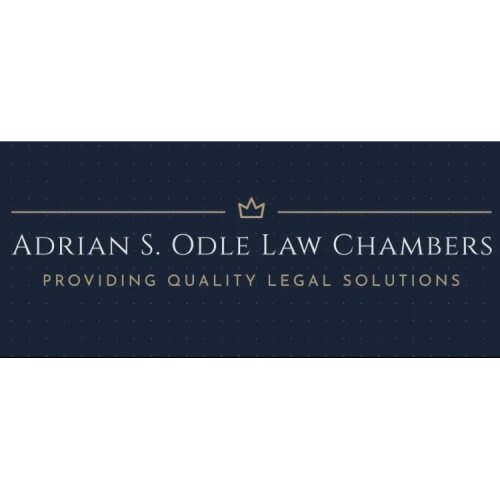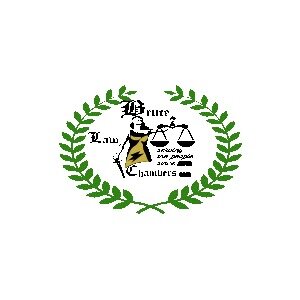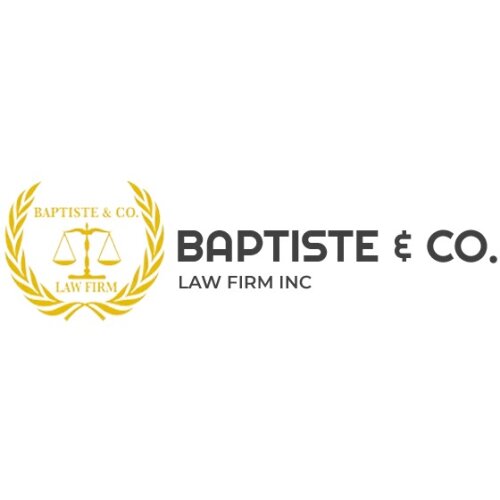Best Project Finance Lawyers in Kingstown
Share your needs with us, get contacted by law firms.
Free. Takes 2 min.
List of the best lawyers in Kingstown, Saint Vincent and the Grenadines
About Project Finance Law in Kingstown, Saint Vincent and the Grenadines
Project finance is a specialized area of law and finance that involves the funding of large, capital-intensive projects based on the projected cash flows generated by those projects. In Kingstown, Saint Vincent and the Grenadines, project finance is commonly used for infrastructure developments, energy projects, tourism properties, and other significant ventures that require external investment. The structure of project finance arrangements typically involves multiple stakeholders, including borrowers, banks, private investors, and government agencies. Key legal considerations include risk allocation, security interests, regulatory compliance, and contractual obligations. The local legal landscape is influenced by common law principles, supplemented by specific statutes and regulations aimed at promoting investment and protecting both lenders and borrowers.
Why You May Need a Lawyer
Project finance transactions are complex and can expose parties to significant legal and financial risks. If you are considering investing in, developing, or lending to a major project in Kingstown, it is important to seek specialist legal advice. Some common situations where a lawyer can be essential include:
- Negotiating and drafting project financing and security agreements
- Ensuring regulatory compliance with local licensing, environmental, and land use laws
- Managing risks of non-payment, default, or disputes among stakeholders
- Structuring tax-efficient investments in compliance with local and international law
- Securing permits and approvals from government authorities
- Establishing and registering special purpose vehicles (SPVs)
- Advising on cross-border transactions involving foreign investment
- Assisting with due diligence and feasibility studies
An experienced project finance lawyer can help protect your interests, reduce risks, and ensure your project proceeds smoothly from inception to completion.
Local Laws Overview
In Kingstown, Saint Vincent and the Grenadines, the legal framework for project finance incorporates elements of English common law, local statutes, and regulations. Some of the key aspects of local project finance law include:
- Security Interests: Lenders commonly require collateral over project assets, receivables, or other property. Legal procedures are followed for registration and enforcement of security interests.
- Corporate Structures: Project developers often use special purpose vehicles (SPVs) established under the Companies Act to isolate liabilities and manage risks.
- Banking and Financing Regulation: Financial institutions and lenders are regulated by the Financial Services Authority, which oversees banking practices and anti-money laundering measures.
- Land and Property Law: Obtaining rights to land and property involves compliance with real estate laws, government lease arrangements, and sometimes foreign investment restrictions.
- Licensing and Permits: Large projects, particularly those involving infrastructure or natural resources, require government licenses and environmental approvals.
- Foreign Investment: Saint Vincent and the Grenadines generally welcomes foreign investment, subject to disclosure and compliance requirements. Tax concessions may be available for qualifying projects.
- Dispute Resolution: Disputes arising from project finance transactions are often resolved through arbitration or litigation in local courts.
Due to the technical and multi-jurisdictional nature of many projects, it is important to work with lawyers who have local expertise and international experience.
Frequently Asked Questions
What is project finance and how does it work in Saint Vincent and the Grenadines?
Project finance is a method of funding projects where repayment is primarily based on the cash flow generated by the project, rather than the general assets or creditworthiness of the project sponsors. In Saint Vincent and the Grenadines, this often involves setting up an SPV, securing funding from banks or investors, and allocating risks via detailed contracts.
What types of projects typically use project finance in Kingstown?
Common projects include infrastructure developments, renewable energy plants, hotels and resorts, port facilities, and large-scale agricultural ventures.
Do I need government approval for a project finance transaction?
Yes, most large projects require permits and approvals from government authorities, particularly if they involve land use, construction, environmental matters, or foreign investment.
Can foreign investors participate in project finance deals?
Yes, foreign investment is encouraged and supported. However, foreign investors must comply with local laws on disclosure, approvals, and any sector-specific restrictions.
What legal structures are commonly used in project finance?
The most common structure is the special purpose vehicle (SPV), a separate company created specifically for the project, which isolates liabilities and simplifies financing.
How are security interests created and enforced?
Security interests are created by agreement and must be registered with the appropriate authorities. Enforcement is usually governed by the terms of the financing documents and local law.
What happens if there is a dispute in a project finance transaction?
Disputes can be resolved through negotiation, mediation, arbitration, or litigation in the courts of Saint Vincent and the Grenadines. The chosen method is usually specified in the project documents.
What are the tax implications of project finance arrangements?
Tax incentives may be available for qualifying projects, but you must comply with local corporate and income tax laws. Legal and tax advice is recommended to ensure efficient structuring.
Is local representation required to close financing deals?
Yes, it is strongly advised to retain a lawyer who is qualified and experienced in Saint Vincent and the Grenadines to handle documentation, due diligence, and regulatory compliance.
How long does it take to complete a project finance transaction?
The timeline depends on the complexity of the project, the speed of government approvals, and the negotiation process. Large deals can take several months to a year or more from start to financial close.
Additional Resources
If you need more information or support regarding project finance in Kingstown, consider reaching out to the following organizations and resources:
- Saint Vincent and the Grenadines Financial Services Authority - regulatory guidance for finance and banking
- Ministry of Finance, Economic Planning and Information Technology - information on investment incentives and approvals
- Invest SVG (Saint Vincent and the Grenadines Investment Promotion Agency) - support for foreign investors and project developers
- Bar Association of Saint Vincent and the Grenadines - referral to qualified local legal professionals
- Environmental protection agencies for compliance with environmental permitting
- Chambers of Commerce for networking with local business and finance stakeholders
Next Steps
If you are considering a project finance transaction in Kingstown, Saint Vincent and the Grenadines, start by defining your project goals and gathering relevant documentation. Next, consult an experienced project finance lawyer to discuss your needs, review local laws, and develop a strategic plan. Early legal engagement can help identify potential risks, expedite approvals, and ensure that contracts and financing arrangements are properly structured. Consider also liaising with government agencies or investment promotion entities to learn about incentives and compliance requirements. With the right legal support, you can safeguard your interests and maximize the chances of your project's success.
Lawzana helps you find the best lawyers and law firms in Kingstown through a curated and pre-screened list of qualified legal professionals. Our platform offers rankings and detailed profiles of attorneys and law firms, allowing you to compare based on practice areas, including Project Finance, experience, and client feedback.
Each profile includes a description of the firm's areas of practice, client reviews, team members and partners, year of establishment, spoken languages, office locations, contact information, social media presence, and any published articles or resources. Most firms on our platform speak English and are experienced in both local and international legal matters.
Get a quote from top-rated law firms in Kingstown, Saint Vincent and the Grenadines — quickly, securely, and without unnecessary hassle.
Disclaimer:
The information provided on this page is for general informational purposes only and does not constitute legal advice. While we strive to ensure the accuracy and relevance of the content, legal information may change over time, and interpretations of the law can vary. You should always consult with a qualified legal professional for advice specific to your situation.
We disclaim all liability for actions taken or not taken based on the content of this page. If you believe any information is incorrect or outdated, please contact us, and we will review and update it where appropriate.











